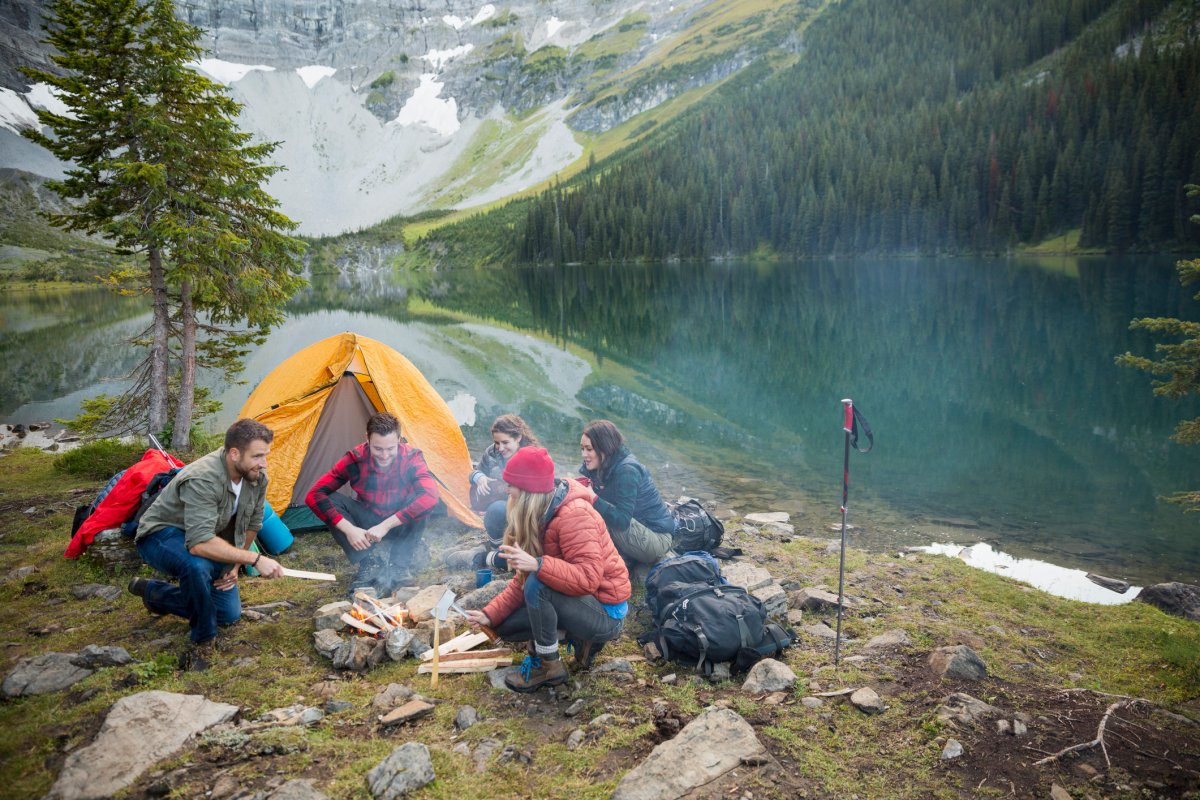It’s the season to be outside, and for anyone who loves camping, this is the best time to take advantage of Canada’s great outdoors.

But like any outdoor adventure, camping can get costly. While it is cheaper than renting a cottage or taking an extended road trip, camping is all about making the right investments and learning how to keep your gear in good condition.
What you need to invest in
Andrew Sutherland, a brand manager at Mountain Equipment Co-op (MEC), told Global News first-time campers should invest in a tent and sleeping bag first.
But sometimes, the options can seem endless. Tents and sleeping bags come in all different shapes, sizes and textures and can range in price, as well.
“Spend some time browsing gear online and use the compare button on the website, which allows you to quickly see the products’ specs which can help you make a decision based on your needs,” Sutherland said.
“For example, you don’t need a super lightweight tent if you’re arriving at your campsite by car. If you never plan on camping in cold weather, get a cooler sleeping bag and save some money.”
If you plan on camping outdoors during colder months, try an insulated sleeping bag, for example.
But tents will make or break your trip, he added.
“Make sure your tent is leak-proof (look for taped seams), has good ventilation (to avoid condensation), heavy-duty zippers (zippers get the most wear and tear) and aluminum poles (steel is heavy and can break when bent),” he continued.
“Choose the size that will makes life easy. For example, a two-person tent doesn’t allow much room for gear, so if you and your camping buddy need some extra space, go for a four-person tent.”
How to save money along the way
And once you have proper gear, you have additional costs like toiletries, extra gear for activities like hiking or canoeing, and of course, food.
“The biggest thing to keep in mind is prepping your food,” Sutherland added. “Prepackaged meals can be expensive, so if you’re able to take some extra time prepping your camping meals from home you will be able to save some extra money.”
And if gear isn’t accessible, MEC also offers a rental program for equipment, including tents, stoves, sleeping bags, watersport gear and more.
Credit: Getty Images

Get breaking National news
“When it comes to your tent, after you get home from an adventure, set up it up and brush away any dirt, mud and grime,” he said. “Leave it somewhere to air out overnight before packing away.”
Check the corners, seams, pockets, etc. for moisture. Until it is completely dry, take it apart and roll it up carefully to be stored until your next trip, he said. “If you put your tent away wet, you risk mold and the fabric deteriorating.”
For sleeping bags, again, make sure it’s dry. Fluff it up and store it in a large breathable sack and store it properly.
“Never fold it,” he said. “Compressing a sleeping bag crushes down feathers and breaks synthetic fibers, reducing the sleeping bag’s ability to trap air, maintain lift, and keep you warm.”
Canadians share their budgets
Below, some avid campers break down their camping budget to get a better sense of how much one trip can cost. Note, these budgets are an estimated cost of gear purchased over the years. Cost also depends on where you live in the country. You can also use our budget breakdown as a camping checklist.
Gurv Brar, 29, started camping when he was 18. These days, the Vancouver native goes camping two to four times a year. He visits provincial campgrounds and back-country camping in Whistler, Squamish and Vancouver Island. He said to save back on costs, he tries to bring things from home as much as possible, including toiletries.
HIS BUDGET BREAKDOWN:
Main gear:
Tent: $200
Sleeping bag: $170
Head lamp: $20
Battery pack: $30
Extra cushion flip-flops: $25
Backpack: $160
Food: $25 per night
Alcohol: $30
Camping utensils: $40
Photo provided by Gurv Brar
Extra activities:
Canoe rental: $20
Kayak rental: $20
Hiking gear: $160 for shoes
Other:
Wood/fire starter: $25
Bug spray: $13
First aid kit: $30
Sunscreen: $10
Park pass/reservations: Depends on the campsite, anywhere from $0 to $82.60 for four.
Estimated total cost: $978
Will Tang, a travel blogger based in Toronto, said sleeping pads have been worth the investment. “As a kid, I used to camp without it and I could never get a good night’s rest. With a proper sleeping pad, I vowed never to do that ever again.” Below, he shares a rough budget meant for two people. He added if you want to cut back on costs, simply borrow gear from other campers.
HIS BUDGET BREAKDOWN:
Main gear:
Tent: $150
Sleeping bag: $240
Sleeping pad: $260
Portable propane grill: $300
Propane tanks: $20
Tarp: $20
Camping chairs: $50
Rope: $10
Food: $50 per night
Other gear (knife, mallet): $110
READ MORE: ‘Glamping’ on the Lachine Canal grows in popularity
Extra activities:
Canoe rental: $40
Other:
Wood/fire starter: $20
Bug spray: $13
Park pass/reservations: $50 per night
Estimated total cost: $1,333










Comments